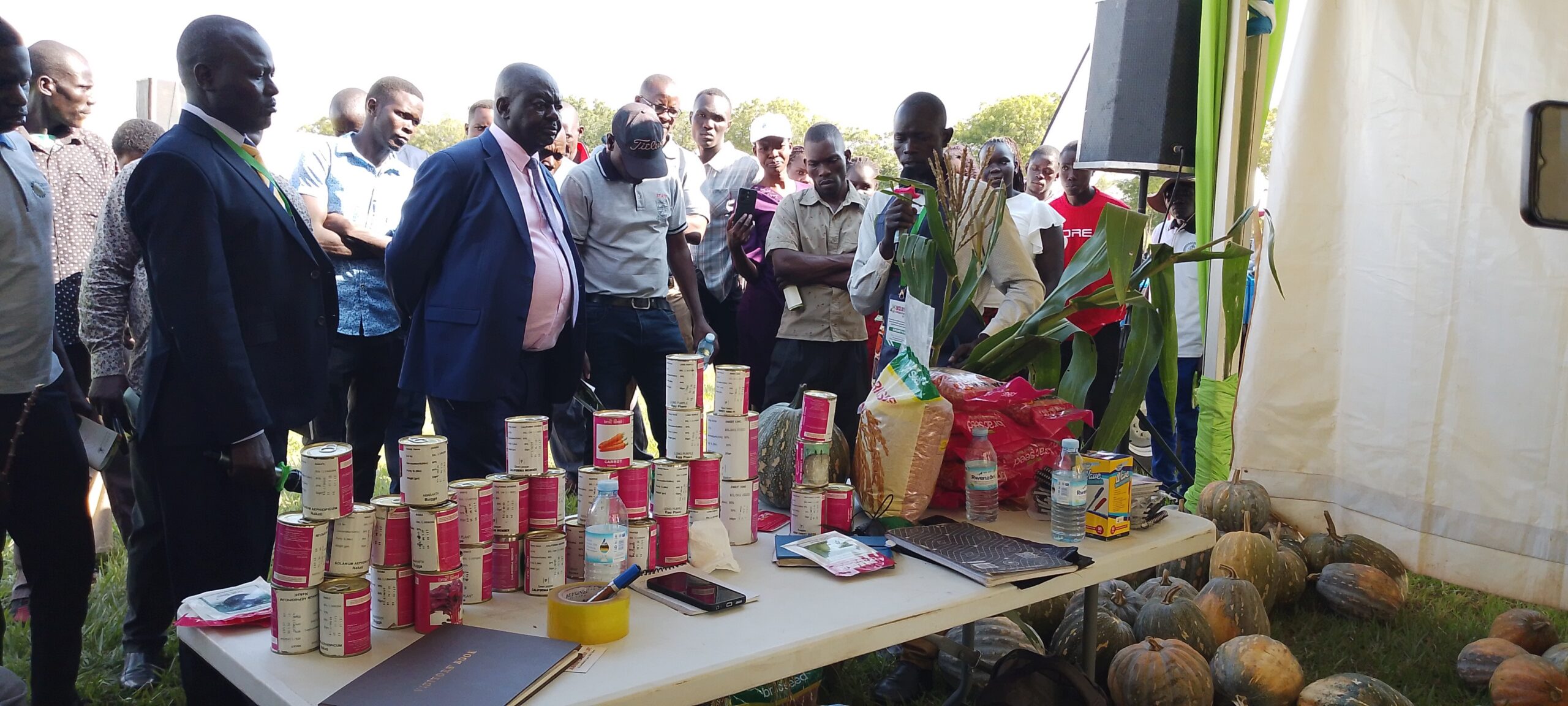SOROTI CITY, September 3, 2025 – Busitema University, in partnership with the Eastern Africa Grain Council [EAGC], has held a successful agribusiness trade expo aimed at empowering farmers in the Teso Subregion through access to modern agricultural technologies and improved practices.
The two-day expo, held recently at Busitema University’s Arapai Campus in Soroti City, brought together farmers, researchers, agribusiness companies, and other stakeholders. It provided a platform for knowledge exchange, showcasing modern farming tools and technologies, and fostering networking opportunities across the agricultural value chain.
Farmers attending the expo were introduced to various agro-technologies, including solar dryers, groundnut threshers, planting tractors, irrigation systems, and improved seed varieties.
Speaking at the expo, David Mutazinda, Chairperson of the Board of Directors at EAGC, noted that one of the biggest challenges faced by farmers in Teso is the lack of modern storage facilities, which leads to significant post-harvest losses and reduced grain quality.
“I was surprised to see farmers still drying their grains on the ground, which severely compromises quality,” Mutazinda said.
He stressed that bringing together farmers, academia, and agribusinesses creates a more integrated approach to agricultural development. “Through this collaboration, farmers gain access to improved seed varieties and modern practices, while companies benefit from ongoing research and innovation,” he added.
Mutazinda also highlighted the importance of promoting quality and cleanliness in agricultural produce. “To improve marketability, we must work together with farmers and stakeholders to promote best practices that ensure high-quality products,” he said.
For smallholder farmers like Sarah Aguti from Kalaki District, producing high-quality grain remains a challenge. Aguti still dries her grains directly on bare ground, a traditional method that exposes them to contamination, pests, and harsh weather, all of which reduce market value.
“I’ve been drying grains on the ground just like my parents taught me, but I’ve noticed the contamination lowers the price I can get,” said Aguti at the expo. “I’m hoping to learn better methods of drying and storing so I can earn more and improve my livelihood.”
Another farmer at the expo, Recheal Aceo, echoed similar sentiments. “Drying grain on bare ground is a method I inherited from my parents. It works for quick drying, but we know it affects quality,” she admitted.
Paul Angura, a farmer from Kaberamaido district who grows groundnuts and maize on commercial basis, praised the expo for providing access to innovations that can transform his work.
“If we remain ignorant, we’ll keep doing things the old way,” said Angura. He expressed particular interest in acquiring a groundnut thresher to reduce labour-related losses during harvest and is also exploring weeding technologies to boost productivity.
On his part, Busitema University Vice Chancellor, Prof. Paul Waako, who attended the expo, reiterated the university’s commitment to transforming agriculture in the region.
“The agribusiness expo is a vital step towards improving the quality and output of agricultural produce. The region’s fertile land holds immense potential, and by exposing farmers to new technologies, we can unlock that potential,” he said.
Waako also announced plans to establish an Agro-Science Park at the university. The park will act as a hub for innovation, research, and development, and will host regular expos to attract industries and create a vibrant agricultural ecosystem.
“This initiative will contribute significantly to the local economy and enhance food security in the region,” he added.
For his part, John Okurut, the Resident City Commissioner [RCC] of Soroti City, encouraged farmers in the Teso Subregion to adopt modern farming methods aimed at commercial production rather than just subsistence.
Found in eastern Uganda, Teso Subregion is known for cultivating a variety of crops including maize, cassava, sorghum, millet, sesame, vegetables, sweet potatoes, and rice. While these crops are mainly grown for household consumption, they also serve as an essential source of income for many rural households.
https://thecooperator.news/teso-farmers-struggling-to-access-agricultural-credit-facility/
Buy your copy of thecooperator magazine from one of our country-wide vending points or an e-copy on emag.thecooperator.news
